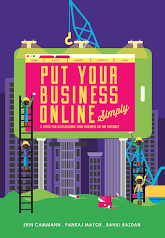Is a Shopify Website the Best Solution for Small Businesses? Shopify's pros and cons

Some small to medium size business owners opt to sell their products via a Facebook storefront, rather than building a unique web presence. Shopify, in turn, sprung into action -- positioning itself as an e-commerce provider for Facebook pages.
The do-it-yourself solution allows owners to create web pages without any knowledge of HTML coding and the end product can be a solid addition to selling products on outlets like eBay or Amazon.
But before you make the leap into an online sales solution like Shopify, it's important to explore your options and ask yourself: Is Shopify really the right solution for my small business?
Let's take a look.
The Pros
Shopify's customizable templates give business owners the freedom to create personalized homepages for their product sales, and it alos offers an integrated storefront for products.
A number of e-commerce solutions, including PayPal access, are available through Shopify, which also features a built-in discount manager for when you decide to have sales or special promotions. Shopify also supports hosting, CRM, and sales tracking.
If questions arise about the service, phone support and online forums are available for help. The solution can also be cost-effective, as Shopify offers a basic, free version of its platform -- without many bells and whistles.
The Cons
While Shopify's array of templates may at first appear to be a good thing, some small business owners realize these very templates can create issues down the road. For instance, they might not have been properly optimized for use on mobile devices or on certain browsers -- and it's even possible that they won't be optimized for search engines like Google.
While e-commerce solutions exist, other necessities for small business owners, like online appointment schedulers and built-in messaging are only available through third-party; which you'll be responsible for maintaining. If you need the ability to complete complex transactions like partial payments or sending quotes, you'll have to look elsewhere, and document functionalities aren't available, either.
Businesses with a need for flexible security on their websites -- or the ability to make certain pages password protected and available only to certain users -- will again need to find another solution, since flexible security isn't offered. Finally, although a free version of Shopify exists, most business owners will need more features, available via a $29 per month version.
The Solution
Fear not -- there is a website building solution that offers small business owners ease of use and an array of e-commerce features. It's possible to use a platform, such as Ocoos, to create your website. Ocoos allows you to not only create your website, but to also schedule appointments, directly accept payments, manage customers, use an interactive calendar, create maps, and more -- without the need for third-party apps.
Because a website built with Ocoos is powered by a core platform, it can be up-to-date with changes in technology. This means your site will always be optimized for multiple hand-held devices, browsers, and search engines.
At Ocoos, we work tirelessly behind the scenes to make sure our technology meets the current, highest standards. Ocoos also offers a patented B2B recommendations engine that automatically links the websites of partner businesses -- creating the change to send traffic between businesses.
If you're worried that your website savvy isn't up to snuff, Ocoos also has a concierge service that, for a fee, will build and maintain your website for you, and offers 24-hour support.


